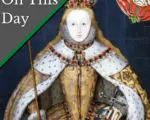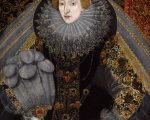
On this day in Tudor history, 8th May 1508, herald and chronicler Charles Wriothesley was born in London.
Wriothesley’s chronicle is one of the major primary sources for King Henry VIII’s reign, so let Claire tell you more about its writer, Charles Wriothesley, Windsor Herald, and what heralds actually are.
[Read More...]



